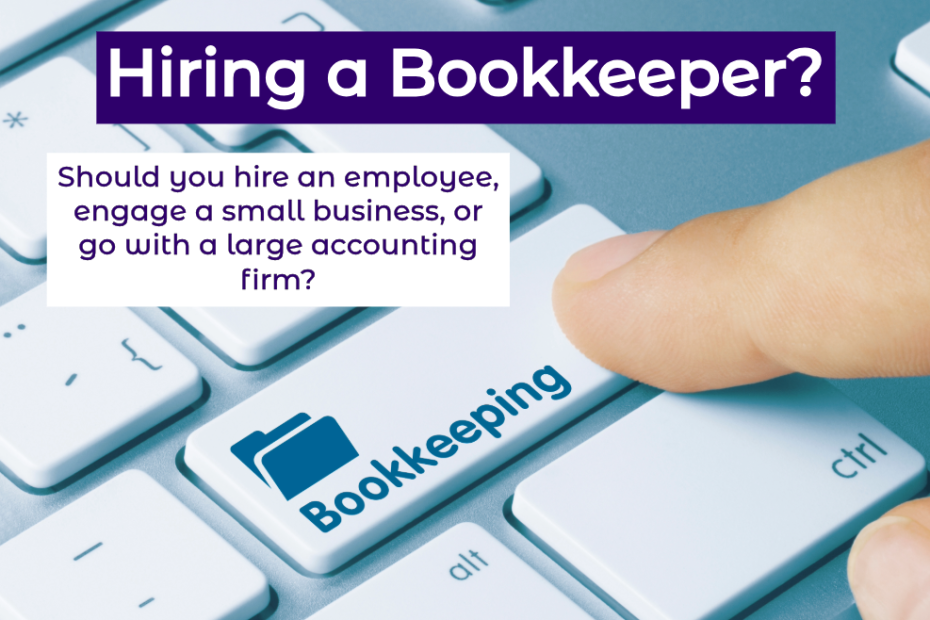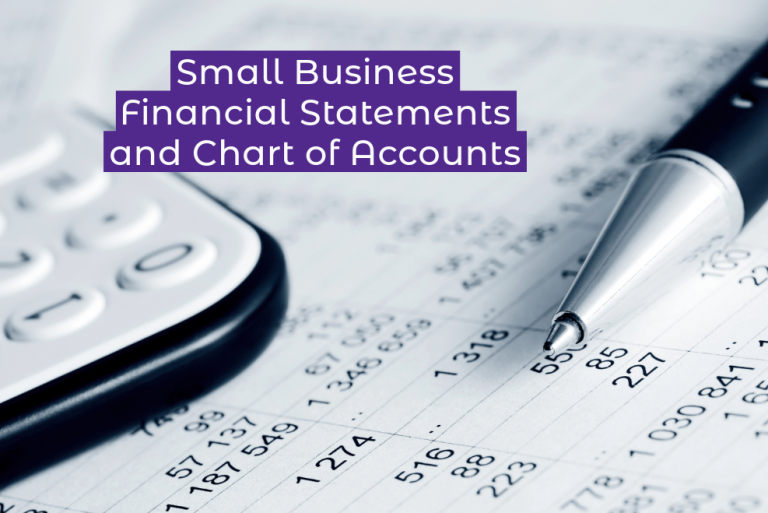What are your options for hiring a bookkeeper? Let’s look at the three main methods of engaging someone to handle your books: hiring an employee to work in-house, hiring a small business such as Six Arrows, or outsourcing to a large accounting firm. Which one will get you the best bang for your buck?
I’ll be rating each of four areas from 1-3. Which option will come out on top? You might be surprised (or not).
Customer Service
First off, let’s tackle the service you receive from each of these options. I would hope you’re able to get along well with someone who is as integral to your organization as the person keeping your books. This is especially true if you’re hiring someone to work in-house. You will see this person daily, so hopefully they’re pleasant to deal with. They’re right there on-site so you can make requests whenever you need, and they should be able to fulfill them practically right away.
On the flip side, if you outsource your bookkeeping to either a small accounting firm or a huge accounting firm, you will not be working with this person as closely. In fact, if you choose the huge accounting firm option, you may have one account manager you work with, and this person is more like someone who manages you rather than someone with financial knowledge. You can probably contact them whenever you want, but how quickly do they follow up on your questions and requests? Are you still waiting for financial statements months after you requested them? If so…fire that company ASAP – just my opinion, of course! Anyway, oftentimes, these large companies also hire people from overseas who will do the job at a lower cost, but these people also often come with a language barrier, and a language barrier when you’re trying to talk money is no bueno (should I translate that? lol).
You really get the best of both worlds when you choose the option to hire a small accountant business to handle your accounting needs. You get the convenience of having a person who is an email away and who will focus on what you’re needing as a small business owner at any given time. Need a P&L in the middle of the month? It’s no problem – you ask, and I will deliver. Granted I would always ask for up to 48 hours for special requests, but chances are, you’ll get it quicker than that. I speak fluent English, and sometimes Spanglish, so there’s no language barrier. I also tend to be detail-oriented and overexplain so hopefully you’ll have your questions answered sufficiently the first time you ask. I like to think I’m pleasant to deal with also…you can be the judge.
Customer Service scores:
In-house, 3 points (assuming you can capably hire this person, since you’ll be seeing them daily)
Small accounting business, 3 points (no daily contact in case they are a curmudgeon, but still very responsive)
Large accounting firm, 1 point (you’re just a cog in their wheel, possible language barrier)
Integration of Departments
When you look at these larger accounting firms, especially those that are international, many of them have their different functions separated into different departments. Here is some copy from a real job posting I found for a billing administrator at one of these places:
As a Billing Operations Administrator III, your primary responsibility will be to process customer billing and credit transactions. This includes handling month-end invoicing, collaborating with the Accounts Receivable Team to address customer inquiries, and resolving billing disputes. Additionally, you will review and approve customer credits issued by other departments.
This made me cringe when I read it! With an in-house bookkeeper or a small business owner, the person you’re working with handles all the functions, so there is no need for that person to get information from other departments or collaborate with anybody other than you, the business owner! There is less troubleshooting involved, which means higher efficiency for your bookkeeper (translation: it also means you pay less).
Integration of Departments scores:
In-house, 3 points (all functions done by one person)
Small accounting business, 3 points (all functions done by one person)
Large accounting firm, 1 point (functions spread across multiple departments that may not communicate well)
Quality of Your Small Business’s Books
What makes a good bookkeeper, anyway?
- Having a true understanding of accounting and how each entry will affect the books
- Being detail-oriented, but also being able to see the big picture
- Having a good workflow that leaves a complete audit trail
- Categorizing things in a way that makes sense for the business owner, with taxes in mind, too
- Creating processes that work for key players in your business, from managers (who need reports) down to customers (A/R) and vendors (A/P)
All of these will impact the information you receive as an owner. Let me just add that it’s on you as the owner to ensure your bookkeeper is set up for success by giving them the information they need for your books to be complete. Please work with that person to connect your varying software/apps to QuickBooks when possible, to develop a central repository for bills and whatnot, and be communicative in what you truly need as an owner. If you don’t care what your Balance Sheet looks like, but you do want to see an A/R Aging Report each month, tell them that! But also be sure they are able to access the documents and tools they need to get you all the info you desire.
Okay, so an in-house employee doing your books will probably have access to what they need and tell you straight-up if they don’t have it so you can make it happen. Being on-site, whatever documents they need will likely also be accessible to them without needing permission or a place to upload things in the way a virtual bookkeeper will require. And, your ability to hire the right person again will come into play here – do they have an accounting degree or relevant work experience? How much are you willing and able to train this person? With this option, however, you also run the risk of sliding into micromanaging territory, depending on how closely you want to oversee what is going on with the books.

When it comes to virtual accountants – small business owners like me, here at Six Arrows – the same really applies. If you take time to vet the person you’re considering hiring, checking out their education and experience, asking questions tailored to your specific business, finding out what solutions they will need as far as app integration with QuickBooks Online and that kind of thing, you’re well on your way to having a nice and tidy set of books. The upside to this route is also that there is no micromanaging involved in the way that sometimes employees can seem to require. A virtual accountant is an independent contractor who knows what they are doing, without handholding from you, which is almost always a win-win.
The last option, the large accounting firm, is a crapshoot. You have no idea who is touching your books, their education and experience, who is supervising them, and even if they have an understanding of U.S. accounting practices (i.e., GAAP). You aren’t able to quickly talk to them and ask why they categorized something a certain way. You can send them documents but how easily can you have a conversation about them? Is their workflow conducive to the way your business functions? You can almost guarantee that your books are not going to be as clean as they otherwise could be, simply because of the difficulty in communicating and inability to vet the people touching your books.
Quality of Your Books scores:
In-house, 3 points (again assuming you can hire appropriately, but the slippery slope into micromanaging will always exist)
Small accounting business, 3 points (the contractor already has the tools needed – you just supply some of the inputs, like bills received or hours worked for payroll)
Large accounting firm, 1 point (this is too hands-off, and you’re still supplying the inputs)
Cost of Accounting for Small Businesses
Last but definitely not least, we will look at the cost of these services. A small business owner who is looking for accounting and bookkeeping services will certainly take cost into consideration, and I get that as it’s a cost of doing business and should absolutely be evaluated just like any other expense.
Let’s be honest here: Small business owners who don’t understand how much a good bookkeeper is worth are the norm, but eventually they figure out that garbage in = garbage out and they seek to find someone who will do the work better. You simply cannot make good business decisions with faulty data. And unfortunately, owners often don’t realize problems that are right in front of them since they tend to be of the opinion that if the bills are getting paid and they have money left over, all is well, and that is a mindset issue for the business owner (don’t be that person!).
Please hear me on this point:
Your books can tell a whole story of what is going on in your business, giving you areas to improve and indicating other areas that are doing great, so I really encourage you to take this seriously and put a greater emphasis on ensuring your books are being done correctly.
I digressed a little, but it needed to be said.
So, back to the cost of accounting services for small businesses. An in-house bookkeeper would be an employee. With employees come all kinds of other costs. You have to have a desk for them to sit at, so they take up space in your facility, making it so that same space cannot be used for income-producing activities. You have to pay the employer portion of their FICA…along with SUTA, FUTA, and Worker’s Comp. You are responsible for training them, supervising them, and the fun parts of hiring and firing which all come at a cost to your organization. The in-house bookkeeper does allow you to exert maximum control over the tasks they are doing, but it does come at the highest cost, by far.
The small bookkeeping business owner is a whole other story. You have none of the above costs to contend with, but because the small business person is responsible for their own taxes, you will be charged a higher fee than you’d pay someone hourly (and nobody likes to consider the payroll tax portion on this, but you absolutely must add it all up). You also have less control over the where/how/what of their work, but it’s all good – they are a small business owner who you can vet and ask questions of before you choose to hire them, just as you would any other worker you’re hiring. The cost here is moderate in both monetary terms and re: your stress level.
The smallest cost would be the large accounting firms that have thousands of employees. These firms hire minimally trained workers, often with no actual accounting education, and assign them to do certain tasks for certain clients. You may have a half dozen people working in your books if you go this route, and you know the saying about the left hand not knowing what the right hand is doing. This is how mistakes are made, and with tons of accounts to supervise, managers aren’t catching errors, either. This leads to you getting financial statements riddled with mistakes due to bookkeeping errors that have to be fixed later, which are not always easy to unravel, especially for these folks with specific training only (the A/P person isn’t going to be able to unravel a mistake the A/R person made, so good luck getting things fixed in a timely fashion). The cost in dollars here is the lowest, but the frustration cost and the amount of time you will spend dealing with mistakes are high.
Cost of Accounting for Small Businesses scores:
In-house, 1 point (actual cost is highest; ease of working with the person is moderate)
Small accounting business, 3 points (actual cost is moderate; ease of working with the person is high)
Large accounting firm, 1 point (actual cost is lowest, ease of working with them is extremely low)
Should You Use a Virtual Small Accountant?
The scores are in!
The in-house bookkeeping employee has a total of 10 points.
The small accounting business owner comes in at 12 points.
The large accounting firm has an abysmal 4 points.
The biggest difference that a virtual small business accounting firm can offer is that they provide individualized service that is similar to that which an employee can offer, but there is much less cost to the business when all is said and done. An independent bookkeeper will have workflows in place, software they like, and they already have some education or experience that will help them – after all, they wouldn’t be in business otherwise.
The large accounting firm is without a doubt the worst option. You are just a number, and if you like cheap and just being a number, okay, go for it. But I’ll tell ya, the amount of cleaning up that needs to be done after these people are touching your books is something you should probably anticipate, and with that will come the additional cost of the cleanup when you decide to hire someone who offers more personalized, higher quality service.
Ultimately, your decision to hire a bookkeeper will hinge upon how you balance the cost of these services with the quality of the service you’ll receive. If you’re looking to streamline the bookkeeping process and you’re ready to engage with a virtual accounting firm run by someone who takes pride in her work, is responsive to clients, and doesn’t cost both arms and both legs, check out my new price estimate tool to get a ballpark figure for your business when outsourcing your accounting. Then, when you’re ready to get started, schedule a call to get your questions answered and get on with it!




